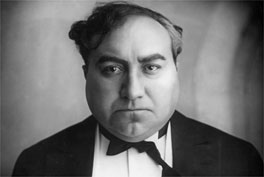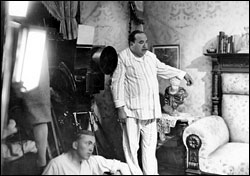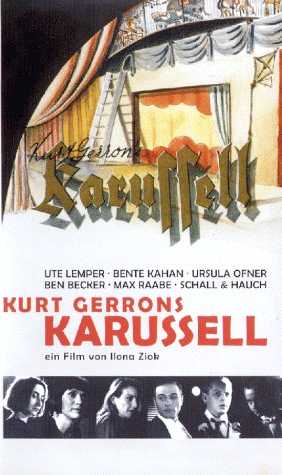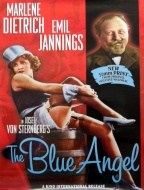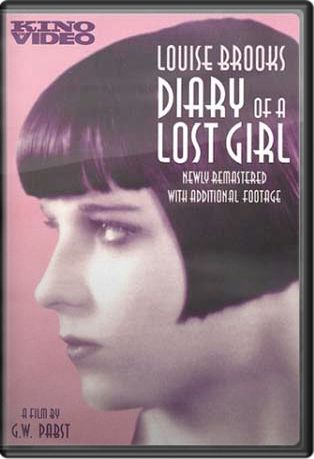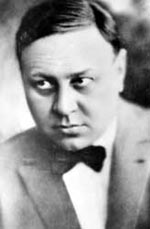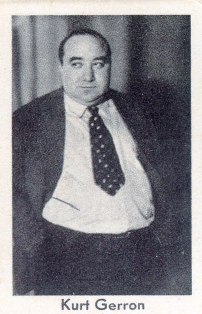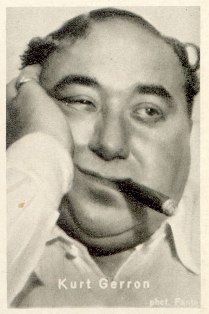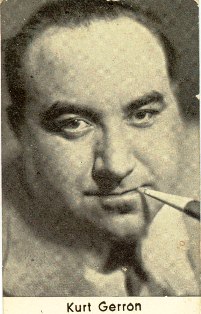Holocaust Education & Archive Research Team |
Revolt & Resistance
Acts of Resistance
Jewish Resistance
Groups Jewish Resistors Allied Reports Anti-Nazi Resistance Nazi collaborators
| |||||||||
Kurt Gerron
Kurt Gerron was born Kurt Gerson to Jewish parents in Berlin, Germany on 11 May 1897.
After school Gerron fought in the Great War and he was wounded several times. During the war he studied medicine, and he obtained a medical degree. However, he became a stage actor in 1920. He appeared in such films as The Blue Angel opposite Marlene Dietrich, and on stage first played the role of Brown – the London Chief of Police – in the premiere production of Die Dreigroschenoper in Berlin in 1928.
Gerron was offered a trip to Hollywood but refused and stayed behind in Europe. He later left Germany, travelling first to France in 1933 and later to the Netherlands. He directed various films in France and Holland during this time.
After the German occupation of the Netherlands he was interned in Westerbork transit camp in mid –1943 before being sent to Theresienstadt – the paradise ghetto, near Prague on 25 February 1944.
There he ran a cabaret called “The Karussell” to entertain the ghetto inmates.
He was subsequently forced by the Nazis to make a propaganda film showing how well the Jews were treated at Theresienstadt. The film was called Der Fuhrer schenkt den Juden eine Stadt – The Fuhrer Gives a City to the Jews.
The Germans promised Gerron his life, but they did not keep this promise.
Gerron submitted a script to Commandant Karl Rahm – “The connecting tissue, the leitmotif was water – the rivers,bathtubs, faucets, showers, irrigation ditches – Berlin liked the theme and approval was given to start filming.
Filming commenced on 16 August 1944 and was completed on 11 September 1944, the film was a grotesque lie, and as soon as filming stopped the ghetto slipped back to its cruel regime of starvation and transports.
After completion of the film, Gerron was deported to Auschwitz on the final transport, and he was gassed in Birkenau on 28 October 1944.
Images of Kurt Gerron
Sources
Bundesarchiv http://www. Filmportal.de Holocaust Journey by Sir Martin Gilbert, published by Weidenfeld & Nicolson London 1997
Copyright SJ H.E.A.R.T 2007
|
